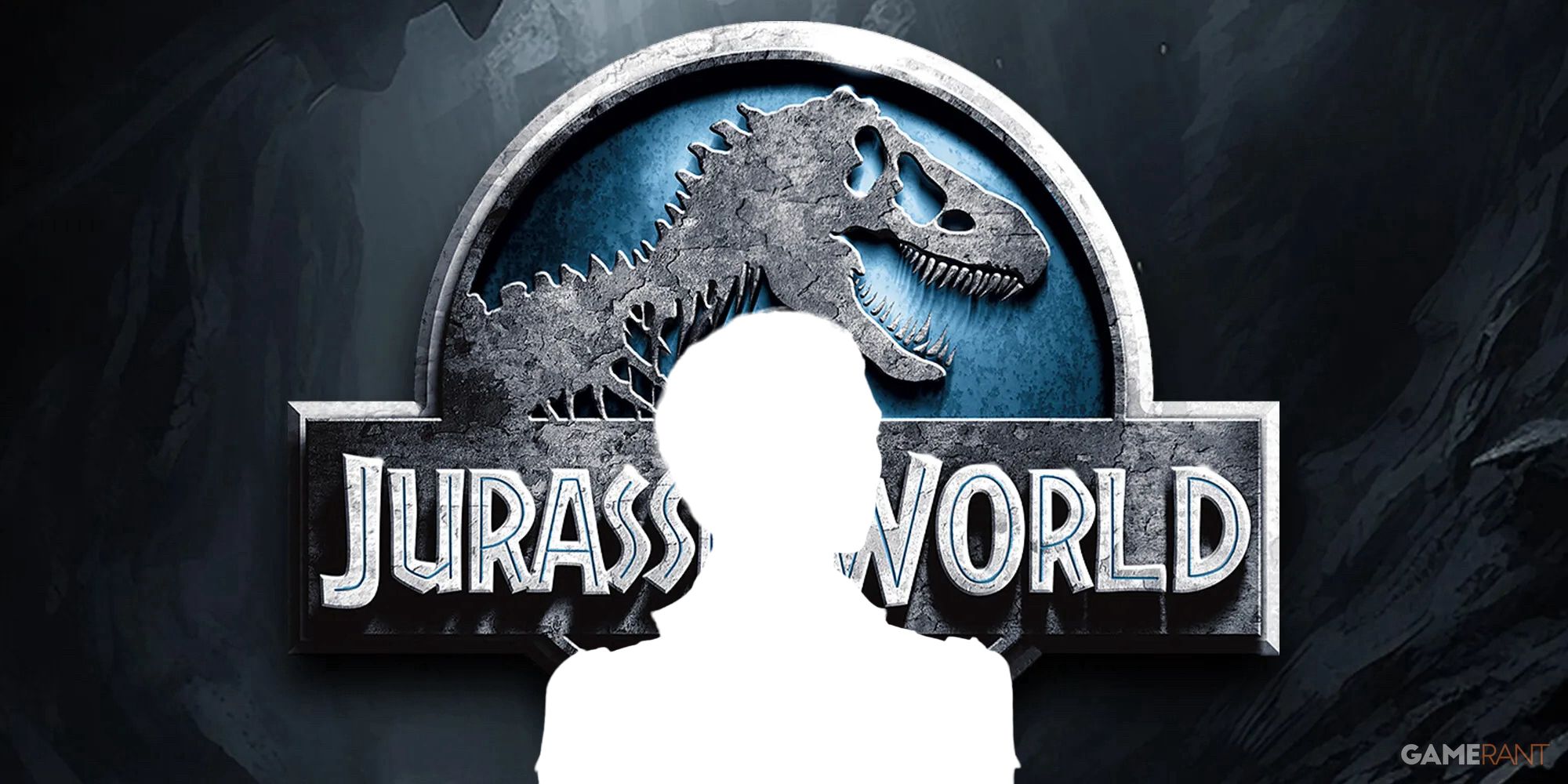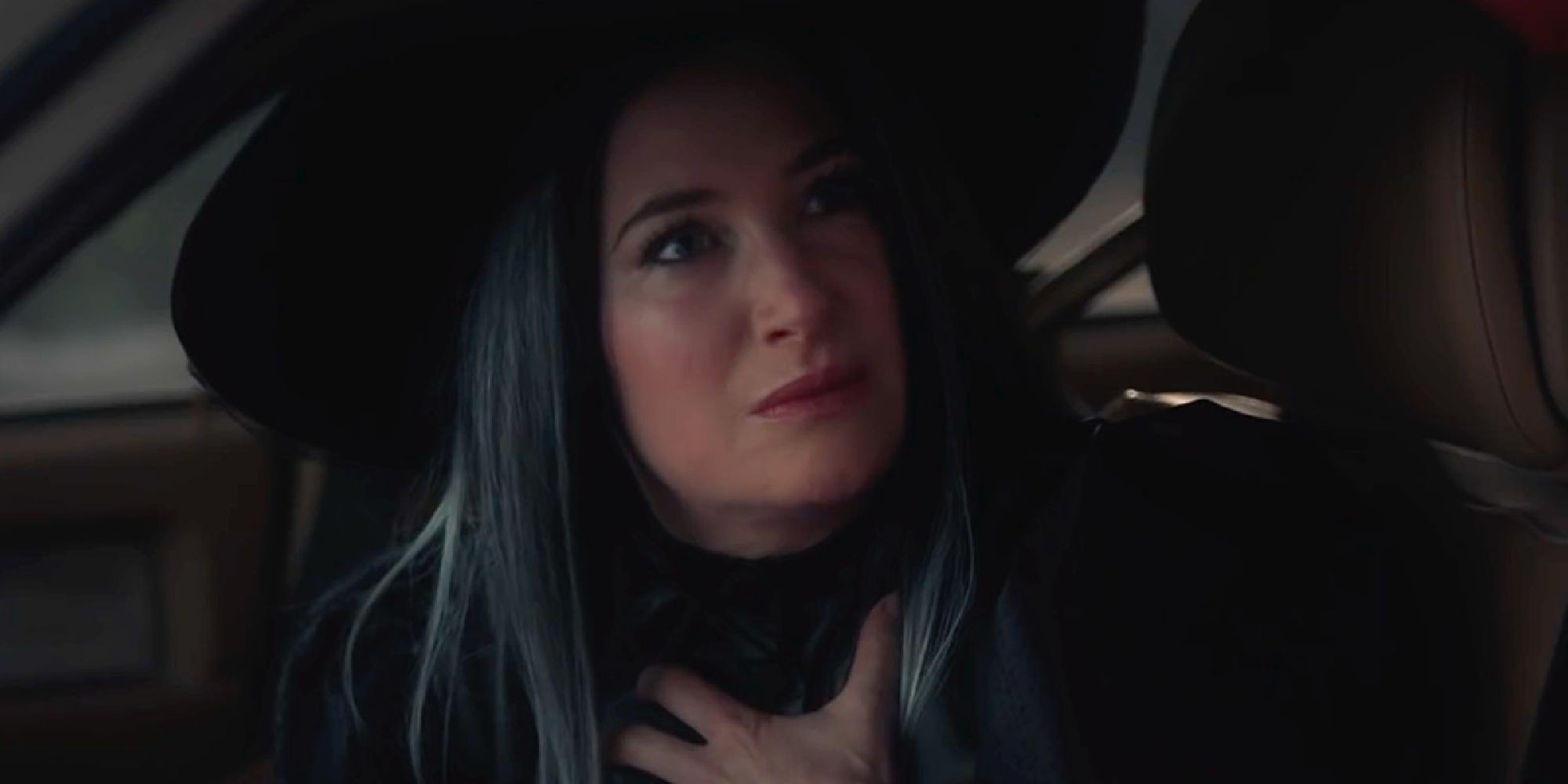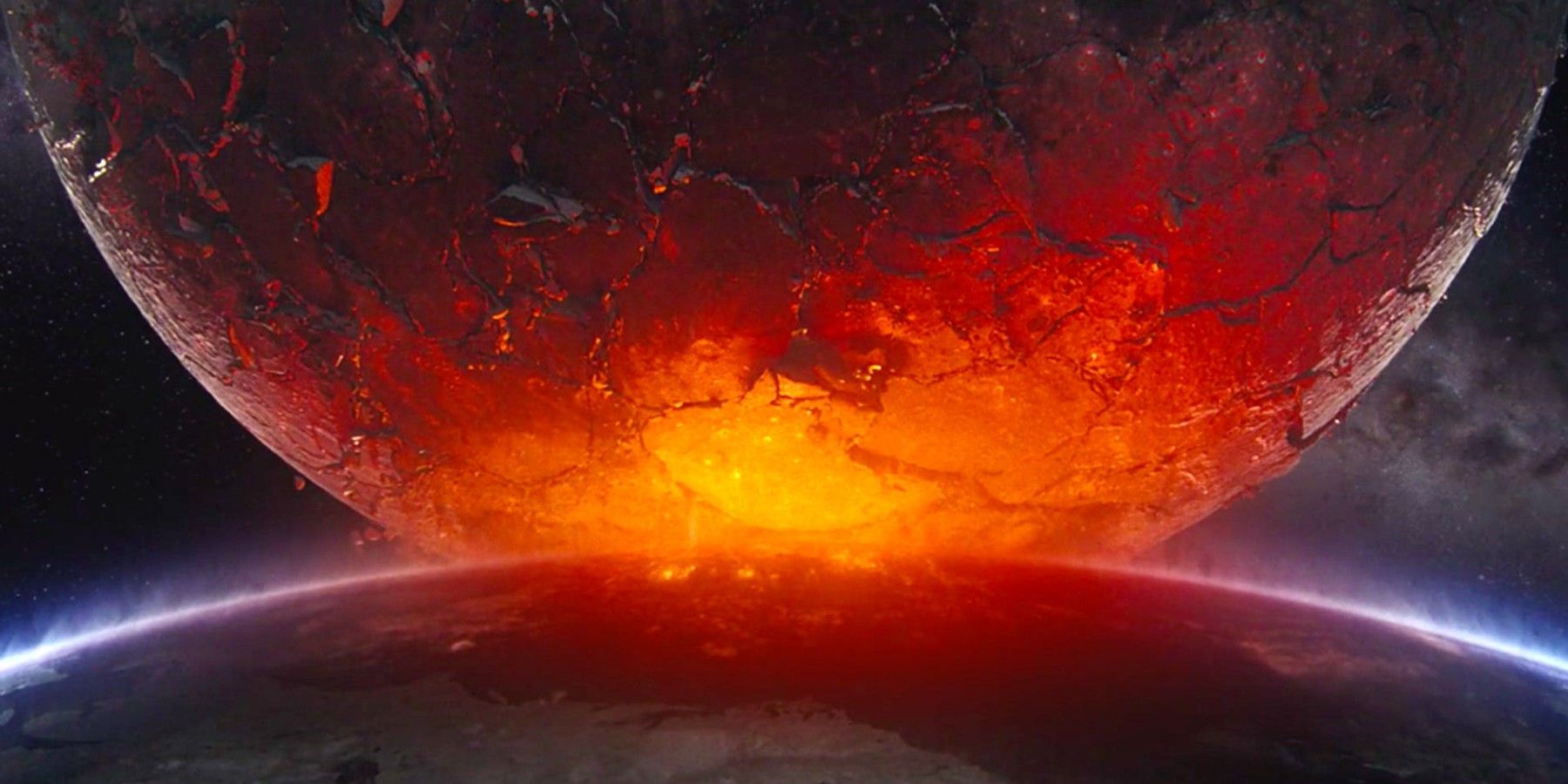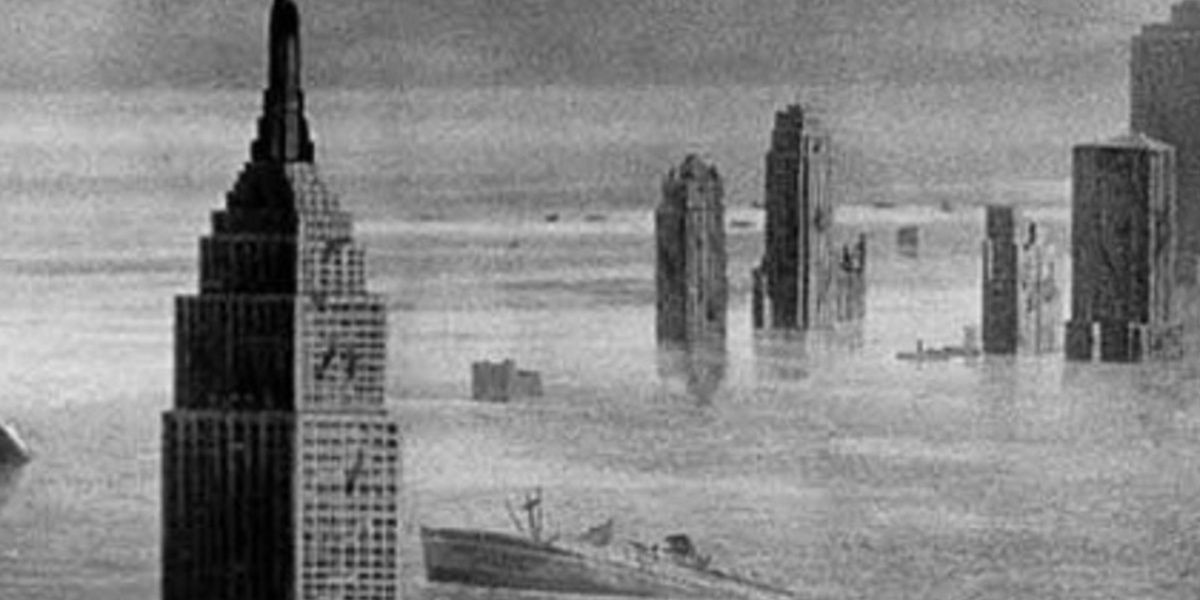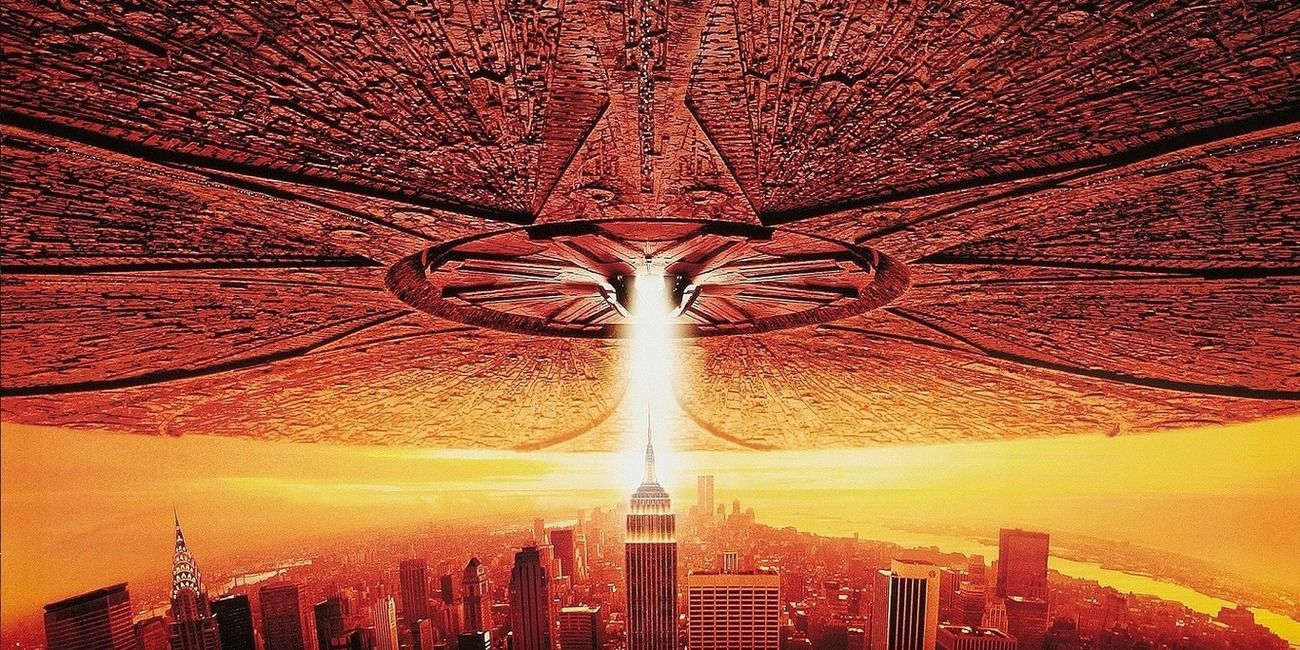Moonfall is an upcoming sci-fi disaster film that concerns exactly what it sounds like: the moon falling from the sky and crashing into the Earth. This is absolutely absurd, and open to criticism from many logical angles, but perhaps it provides a perfect glimpse into the future of this long-running genre.
Disaster movies are fairly straightforward, centering around some massive catastrophe and the individual responses of the populace as all falls to ruin. The main distinction between a classic disaster movie and any particular action film wherein cities explode or the Earth dies is the role of the main characters. Basically, action movie heroes fight, disaster movie protagonists run.
Disaster movies are a very wide-ranging genre, from world-ending apocalypse scenarios to more local crises. The first proper disaster movie was likely Deluge in 1933. The film is about an unexplained flood of near biblical proportions, which consumes most of the land on Earth, submerging New York City in a fairly impressive effect at the time. This set the tone for the genre for almost ninety years and dozens of films of varying quality. The most popular disaster films focus on shipwrecks, massive storms, nuclear war, deadly pandemics, and other nightmare scenarios that anyone reading the news will find familiar.
Watching countless innocents be washed away in unavoidable crises carries a slightly different weight in the modern day. The films are still intermittently successful, but they will only continue to become more topical to varying effects. The most recent big-budget disaster film was 2017's Geostorm, which was a massive flop for a wide variety of reasons. Meanwhile, in early 2020, as the pandemic became the world's focus, Contagion became one of the most-watched films worldwide. Even as the world gets worse, the films may remain popular, but there will come a point where commiseration for a film's similar scenario will give way to trauma. Worth mentioning that no one seems to be discussing Contagion today, almost 18 months later.
A mere 71 years after the release of Deluge, a filmmaker boldly recreated its most famous scene for a very different film. That film was the controversial semi-scientific thriller The Day After Tomorrow, and that filmmaker was Roland Emmerich. The Day After Tomorrow is a flawed film explicitly about manmade climate change, an issue rarely tackled at the time. The film's version of the effects of climate change were scientifically impossible, and it attracted derision from both denialists and climate scientists. One wonders how audiences would respond if the film released today.
Roland Emmerich is perhaps the best-known director of disaster cinema. Fans know what they're getting with an Emmerich piece, explosions, countless random deaths, wanton destruction, a well-known cultural landmark being obliterated, etc. There is a great deal to criticize Emmerich over, his characters are often blank ciphers, his films are often bereft of fact despite their historical or scientific coat of paint, his films suffer from being all flash and no substance. Emmerich's work is silly, even when its bracingly serious, and his newest piece may just set the tone for disaster film into the future.
Moonfall is set to be Roland Emmerich's 18th film, he will serve as writer, director, and producer. As is the typical case for Emmerich, scientists are already lining up to poke fun at Moonfall for its blatant absurdity. The difference between the upcoming film and The Day After Tomorrow is that Moonfall is deliberately leaning into the comical scenario. Climate change is a real concern, the science behind which is extremely misunderstood. The moon careening downward like the Sword of Damocles to finally wipe out all life on Earth is a fun flight of fancy that audiences can play with.
Filmmakers rarely make war movies about ongoing conflicts, it is challenging to dramatize the life of a public figure who is still around, and as disaster movies trend closer to tragic reality, they must embrace the absurd. Two elements are key to the future of disaster cinema, escalation, and escapism. As reality rushes forward to meet the battered world of the big screen, the films must push further outside the bounds to compensate. Simultaneously, the disaster cinema market exists to be an escape from the real world, and if the real world still feels too close, the illusion weakens.
Moonfall could be the standard-bearer for a new generation of disaster films. The truth of the genre is that the best of them focus on the victims, not the disaster. The human condition, captured in a state of panic and disarray, will always be more engaging than piles of progressively larger things breaking. This, unfortunately, is very difficult to adequately write and direct, so many disaster films just fall back on spectacle. Today, as the world enjoys its own disasters, the genre must take a new direction and embrace the absurd.

